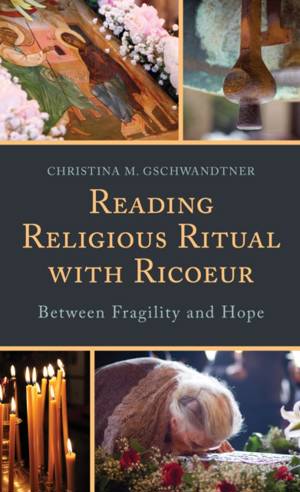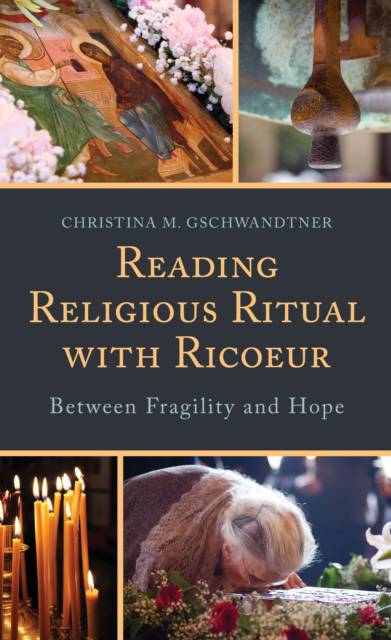
- Afhalen na 1 uur in een winkel met voorraad
- In januari gratis thuislevering in België
- Ruim aanbod met 7 miljoen producten
- Afhalen na 1 uur in een winkel met voorraad
- In januari gratis thuislevering in België
- Ruim aanbod met 7 miljoen producten
Omschrijving
Reading Religious Ritual with Ricoeur: Between Fragility and Hope creates a dialogue between Ricoeur's hermeneutic philosophy and the interpretation of human ritual practices, especially as such practices are manifested within the context of Christian liturgy. In the first part of the book, Christina M. Gschwandtner shows that Ricoeur's account of religion would be deepened if it were to take into account not only the biblical texts but also forms of liturgical expression and ritual actions. She challenges Ricoeur's early reading of the symbol and second naïveté, broadens his interpretation of biblical texts and faith to consider religious actions more fully, and suggests that ritual can enhance human capacities. The second part of the book employs Ricoeur's hermeneutics in order to shed light on the analysis of liturgy, demonstrating that his accounts of truth, of the world of the text, of religious language, of the imagination, and of the formation of identity are all eminently applicable to liturgical experience. Reading Religious Ritual with Ricoeur shows that one of the most significant themes in Ricoeur's work--the tension between fragility and hope--is especially helpful for understanding what liturgy does and how it functions. Seeing how liturgy and ritual configure fragility and hope also enriches Ricoeur's account of the role and function of religion in human experience.
Specificaties
Betrokkenen
- Auteur(s):
- Uitgeverij:
Inhoud
- Aantal bladzijden:
- 300
- Taal:
- Engels
- Reeks:
Eigenschappen
- Productcode (EAN):
- 9781793647177
- Verschijningsdatum:
- 20/08/2021
- Uitvoering:
- Hardcover
- Formaat:
- Genaaid
- Afmetingen:
- 152 mm x 229 mm
- Gewicht:
- 607 g

Alleen bij Standaard Boekhandel
Beoordelingen
We publiceren alleen reviews die voldoen aan de voorwaarden voor reviews. Bekijk onze voorwaarden voor reviews.









